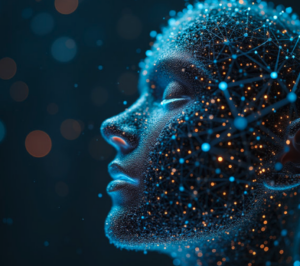
Explore the potential of AI’s future and how society can balance groundbreaking technological advancements with core human values like fairness, ethics, and equity.
Artificial Intelligence (AI) is advancing at an incredible rate, with applications across virtually every sector of society. From healthcare to transportation, AI has the potential to revolutionize how we live and work. However, as AI becomes increasingly integrated into everyday life, it raises crucial questions about how these technologies should be developed, deployed, and governed.
The future of AI must strike a balance between technological innovation and safeguarding human values. We need to ensure that AI’s progress is aligned with ethical principles, such as fairness, transparency, privacy, and equity. As we look forward, it’s critical to design AI systems that not only advance technological capabilities but also reflect the collective aspirations of society.
This article explores the opportunities and challenges of AI’s future, the ethical issues involved, and the strategies necessary to guide AI development in a responsible and ethical direction.
The
Promise of AI: Transforming the Future
AI holds tremendous promise for addressing some of society’s most pressing challenges. Its capacity to process vast amounts of data, recognize patterns, and automate tasks is creating new possibilities in various fields:
- Healthcare: AI is already playing a transformative role in medical diagnostics, drug development, and personalized treatment. AI systems can analyze medical images, predict disease outbreaks, and even suggest treatment plans tailored to individual patients.
- Transportation: Autonomous vehicles, powered by AI, promise to revolutionize transportation. Self-driving cars, trucks, and drones can reduce traffic congestion, cut down on accidents, and improve mobility for people who are unable to drive.
- Education: AI is enhancing the learning experience by offering personalized education solutions. Tools such as AI-driven tutoring systems help tailor lessons to individual students’ needs, while administrative AI can reduce the time teachers spend on grading and scheduling.
- Climate Change: AI can assist in combating climate change by optimizing energy consumption, predicting environmental changes, and improving sustainability efforts. Machine learning models are being used to predict weather patterns and to design more efficient energy systems.
- Business and Economy: AI is changing the way businesses operate, making processes more efficient, predicting market trends, and optimizing resource allocation. AI systems are also being used to personalize customer experiences and drive innovation in industries like finance, retail, and manufacturing.
However, with great innovation comes great responsibility. While the potential benefits of AI are immense, the rapid advancement of this technology raises important ethical, social, and economic questions.
Ethical Challenges of AI: Navigating Potential Pitfalls
As AI systems grow more advanced, the potential for unintended consequences increases. These systems may inadvertently reinforce inequalities, violate privacy, or operate in ways that are not transparent to the public. Here are the main ethical challenges:
1. Bias and Discrimination
AI systems learn from data, and if that data is biased, AI models can perpetuate those biases. For instance, biased data in criminal justice systems can result in unfair sentencing, or biased hiring algorithms can discriminate against women or minority groups.
Solution: To mitigate bias, developers need to ensure that training data is diverse and representative of all demographics. Additionally, AI models should be audited regularly to identify and correct any biases in their predictions or decisions. Bias mitigation techniques and algorithmic fairness should be integrated into every stage of AI development.
2. Privacy and Data Security
AI systems often rely on vast quantities of personal data, raising concerns about privacy violations and the security of sensitive information. Unauthorized access to data can lead to identity theft, surveillance, and abuse of personal information.
Solution: To safeguard privacy, AI systems must follow strict data protection protocols. This includes data anonymization, encryption, and implementing clear consent protocols for data usage. Governments must also enforce data privacy regulations like the GDPR to hold companies accountable for handling personal data responsibly.
3. Transparency and Accountability
AI decision-making processes are often described as “black boxes,” meaning it can be difficult to understand how a machine reached a certain conclusion. Lack of transparency can lead to public distrust, especially when decisions affect lives, such as in healthcare or criminal justice.
Solution: Developers must create explainable AI (XAI), where the decision-making processes of AI systems are transparent and understandable to humans. Accountability frameworks should also be put in place to ensure that organizations are held responsible for AI-driven decisions, especially when harm is caused.
4. Autonomy and Human Control
As AI systems become more autonomous, questions arise about the level of human control that should remain over critical decisions. For instance, in autonomous vehicles or military AI, the consequences of AI decisions could have serious ethical implications.
Solution: It’s crucial to implement human-in-the-loop (HITL) systems, where humans remain involved in key decisions, especially in high-stakes situations. Ethical guidelines should dictate that AI should prioritize human safety and well-being, with safeguards like manual override options in place.
5. Economic Displacement
AI-driven automation has the potential to replace jobs, especially in industries involving repetitive or manual tasks. This raises concerns about economic inequality and the displacement of workers who may not have the skills to adapt to new roles.
Solution: Governments, businesses, and educational institutions must invest in reskilling and upskilling programs to prepare workers for AI-driven industries. Policies such as universal basic income (UBI) could help mitigate the economic impact of job displacement.
Balancing Innovation with Human Values
To navigate the ethical challenges of AI and ensure it serves the public good, society must strike a careful balance between innovation and human values. Here are key strategies for achieving this balance:
1. Ethical Design Principles
AI systems should be designed with ethical principles in mind. This includes promoting fairness, privacy, security, and transparency. Ensuring that AI is designed with the intention of benefiting society as a whole will help prevent unintended harmful outcomes.
2. Inclusive Development Teams
Diversity in AI development teams is essential for identifying potential biases and ensuring that AI technologies serve all demographics. Diverse teams bring different perspectives, which can help prevent the exclusion of marginalized groups and ensure that AI technologies are inclusive and fair.
3. Regulatory Oversight
Governments and international bodies must play a key role in regulating AI to ensure its ethical use. Clear standards and regulations should be established, governing everything from data protection to transparency and accountability.
4. Public Engagement
The future of AI should be shaped by ongoing public dialogue. Public forums, consultations, and debates about the ethical implications of AI will ensure that AI technologies are developed in ways that reflect society’s values and address citizens’ concerns.
5. AI Education and Awareness
Educating the public about AI and its ethical implications is crucial for creating an informed society. Understanding AI’s potential benefits and risks will help people make informed decisions about its use and foster trust in AI systems.
The Future of AI – A Path Toward Ethical Innovation
As AI continues to evolve, it presents an opportunity to reshape the future of our society in profound ways. From improving healthcare outcomes to tackling climate change, the potential benefits of AI are vast and varied. However, the journey towards harnessing the full potential of AI is not without its challenges. If AI is to have a positive and lasting impact on society, it must be developed in ways that prioritize ethical considerations, human values, and fairness.
The key to ensuring a balanced future of AI lies in responsible innovation. This means designing AI systems that are not only effective and efficient but also aligned with principles of transparency, accountability, privacy, and fairness. It also requires a shift toward inclusive development practices that bring together diverse perspectives to prevent the perpetuation of biases and discrimination. Diverse teams are better equipped to identify issues that may affect marginalized communities and to design AI systems that serve all people equitably.
Equally important is the role of regulation and oversight in AI development. Governments, international organizations, and industry stakeholders must collaborate to create robust regulatory frameworks that guide the ethical development and use of AI. These frameworks should promote openness and transparency, ensuring that AI systems can be held accountable for their decisions and actions. At the same time, regulations must not stifle innovation but instead encourage responsible and ethical growth in the AI industry.
Furthermore, as AI technology becomes more ingrained in daily life, public engagement will be crucial in shaping its direction. The concerns and aspirations of ordinary citizens must be taken into account, ensuring that AI serves society’s best interests. Governments and organizations should invest in public awareness campaigns to educate the population about the potential and risks of AI, empowering them to participate in informed discussions about AI’s role in society.
One of the most important considerations moving forward is ensuring that AI systems are designed with human values at their core. Ethical design principles that prioritize human dignity, privacy, security, and fairness must be the foundation of every AI initiative. In doing so, we can avoid the potential harms that come with unchecked technological progress, such as the erosion of privacy, widespread discrimination, or the loss of jobs to automation.
AI should not be seen as a replacement for human decision-making but rather as a tool to augment human capabilities. Whether it’s improving decision-making in healthcare, enhancing safety in autonomous vehicles, or assisting teachers in providing personalized education, AI can be a powerful force for good—but only if it is harnessed responsibly.
All in all, the future of AI is an exciting one, filled with possibilities that could change the world for the better. However, the true promise of AI will only be realized if we take a balanced, thoughtful approach to its development. This means ensuring that innovation is always accompanied by ethical considerations, rigorous oversight, and a deep commitment to upholding human rights. If we succeed in creating AI systems that are fair, transparent, and accountable, we can unlock their full potential to enhance quality of life and contribute to a more just, equitable, and sustainable world.
AI has the potential to become a force for good, but this will only be possible if we, as a global community, ensure that its evolution is guided by human values. The future of AI depends not only on what we can do with the technology but also on how we choose to do it. By embedding ethical considerations into every step of AI development and creating a governance framework that aligns innovation with societal values, we can ensure that AI is a tool that benefits humanity and drives progress in a responsible, inclusive manner.
Frequently Asked Questions (FAQ): The Future of AI
1. What are the main ethical concerns with AI?
The main ethical concerns with AI include bias, privacy violations, lack of transparency, autonomy and control, and economic displacement. These concerns must be addressed through inclusive design, regulatory frameworks, and public engagement.
2. How can we prevent AI from reinforcing societal biases?
Preventing bias in AI requires the use of diverse, representative datasets, regular audits for fairness, and designing systems with algorithmic fairness in mind. Developers must ensure that AI systems do not perpetuate historical inequalities or discriminate against marginalized groups.
3. How will AI impact jobs in the future?
AI is likely to lead to both job displacement in certain sectors and job creation in others. To address this, governments and businesses must invest in reskilling and upskilling programs and ensure that workers are prepared for the AI-driven economy.
4. What role should governments play in regulating AI?
Governments should establish clear regulations to ensure that AI is developed responsibly. This includes setting standards for privacy, data protection, transparency, and accountability to prevent misuse and ensure AI benefits society as a whole.
5. Can AI be fully transparent?
While full transparency in AI is challenging, developers can create explainable AI (XAI) systems that provide understandable explanations for their decisions. This will increase trust in AI and allow for accountability in decision-making processes.
6. How can we ensure AI respects human rights?
AI systems should be designed to prioritize human dignity, privacy, and fairness. Ethical guidelines and regulatory oversight are essential to ensure that AI development respects and upholds human rights.
7. What are the potential benefits of AI in healthcare?
AI can improve diagnostics, enhance personalized medicine, accelerate drug development, and streamline administrative tasks. AI can help healthcare providers make more accurate decisions and improve patient outcomes.
8. What is explainable AI (XAI)?
Explainable AI (XAI) refers to AI systems that are designed to be transparent in their decision-making processes. XAI aims to provide clear, understandable explanations for AI’s actions, helping to build trust and ensure accountability.
9. How can AI help with climate change?
AI can assist in predicting climate patterns, optimizing energy consumption, and improving environmental monitoring. AI models are being used to develop sustainable solutions, such as smarter grids and renewable energy systems.
10. What is the future of AI ethics?
The future of AI ethics will revolve around ensuring that AI systems are developed and deployed in a way that respects human values like fairness, privacy, accountability, and inclusivity. As AI technology evolves, continuous reflection and adaptation of ethical guidelines will be necessary to keep pace with advancements.



